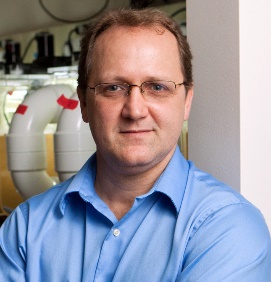Fall 2016 eNewsletter
CILER Spotlight: A Letter from CILER’S New Director, Dr. Bradley Cardinale
 Dear Colleagues,
Dear Colleagues,
Since becoming Director of UM-NOAA’s Cooperative Institute for Limnology & Ecosystems Research (CILER) this past May, I’ve spent a lot of time thinking about the challenges and opportunities we face in managing the Great Lakes. We are fortunate to live near the single largest source of surface freshwater on the planet, which provides a source of drinking water, recreation, inspiration, and identity for tens of millions of people. The Great Lakes also represent one of the world’s great Blue Economies, providing goods and services that underlie much of the prosperity of the U.S. and Canada.
Despite our freshwater bounty, we have seen firsthand how increased human pressure on the Great Lakes and its surrounding watersheds has influenced water extraction, harmful algal bloom intensity and frequency, exotic species introduction and spread, public beach closure frequency, and on and on. The vitality of the Great Lakes, and the prosperity of people who depend on them, will ultimately be determined by our success in learning how to sustainably manage this critical resource. Achieving sustainability requires that we work together on four challenges:
Strong partnerships. The Great Lakes belong to no single entity, and no one knowledge system can tell us how to best use the Great Lakes. Universities, NGOs, and government agencies spanning all of the Great Lakes on both sides of the border must forge better working relationships, and must do more to involve private organizations and citizen groups who are the end users of information. To help meet this challenge, CILER is working to increase opportunities and incentives for research institutions, as well as private and public partners, to collaborate with NOAA on sustainable management of the Great Lakes.
Co-designed research. Partnerships don’t just emerge at the end of research. True partnerships are forged when all stakeholders work together to define the essential questions, and decide together on the knowledge and products that must be generated to solve a problem. CILER has initiated several new programs designed to foster co-designed research, including annual working groups and summits that bring together experts from academia, government agencies, private industries, and citizen groups to establish priorities for Great Lakes research and management.
Interdisciplinary collaboration. Most research in the Great Lakes has been led by natural scientists studying the biophysical processes that underlie environmental problems. But all of the problems facing the Great Lakes are ultimately people problems. To solve them, natural scientists must work closely with social scientists seeking to understand human behavior, and with experts in landscape design and engineering who lead development and restoration efforts. To help meet this challenge, CILER is working to integrate social science into our research programs, and to offer more opportunities for natural/social scientists to work with engineers and design experts.
Actionable science. Nearly all science is initiated with the hope that it will solve a key problem; but much of that work doesn’t pan out, and some takes a long time to develop into applications. While basic science is the engine of a prosperous society, I am convinced we have too little time and too few resources to spend on research that is far from application in the Great Lakes. CILER and our research partners are committed to generating scientifically rigorous information that helps us deal with the issues we are facing today, and keeps us abreast of the new problems we may face tomorrow.
I am optimistic that we can move toward more sustainable management of the Great Lakes by working together to meet these four challenges, and I am excited to contribute to this goal as the new Director of CILER. I look forward to co-designing more interdisciplinary, actionable science with our partners to help NOAA accomplish its research mission in the Great Lakes.
Sincerely,
Brad Cardinale
Director, Cooperative Institute for Limnology & Ecosystems Research
Professor, School of Natural Resources and Environment
University of Michigan
